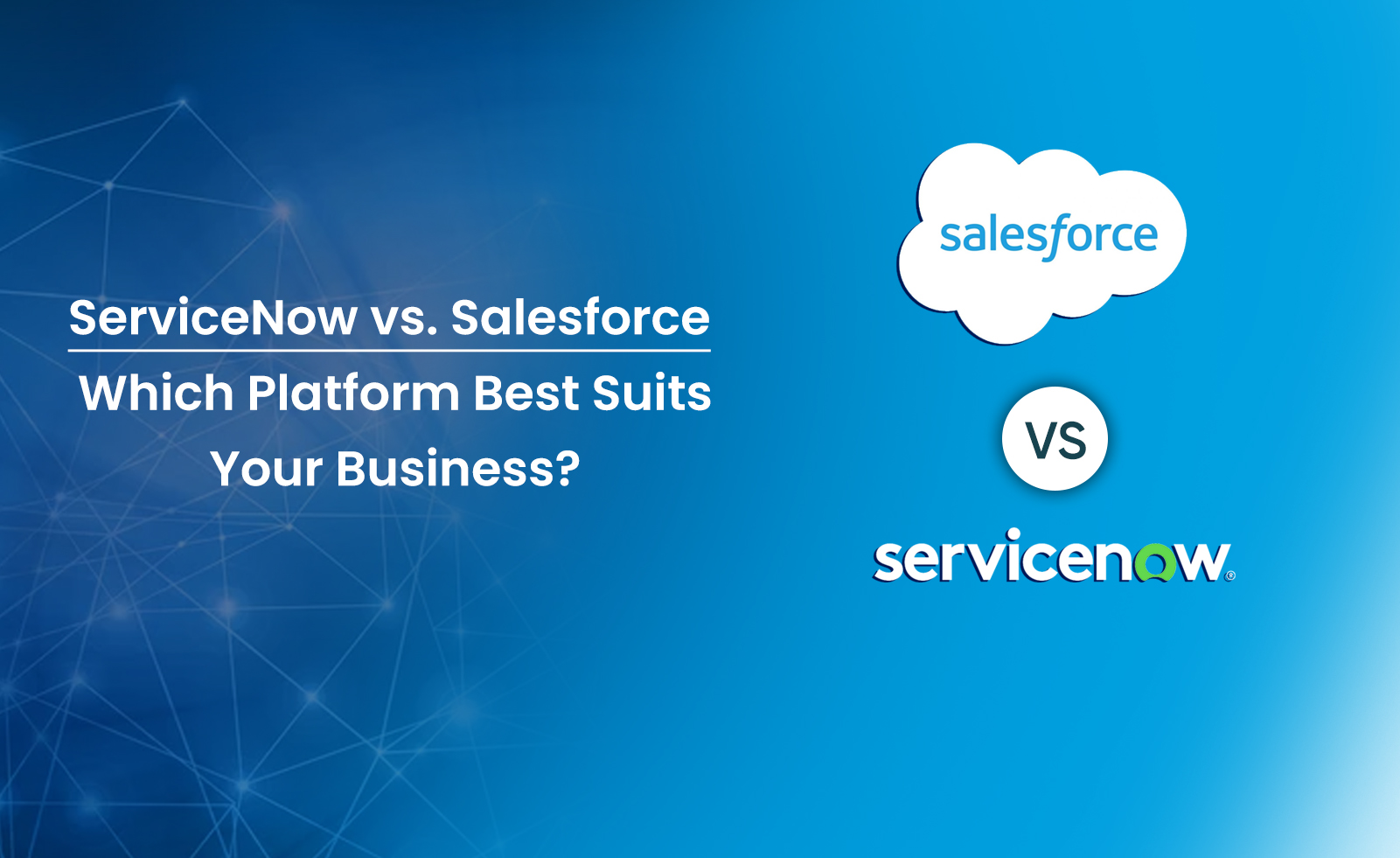
Salesforce and ServiceNow are two prominent cloud-based platforms that cater to different aspects of business management. While Salesforce focuses on customer relationship management (CRM), ServiceNow specializes in IT service management (ITSM) and enterprise service management (ESM). Understanding the strengths and purposes of each platform is crucial for businesses to make an informed decision about which one is the best fit for their specific needs.
Salesforce: Empowering Customer Relationships and Sales
Salesforce is renowned for its robust CRM capabilities, enabling businesses to manage and nurture customer relationships effectively. It offers a range of tools and features designed to streamline sales processes, facilitate marketing campaigns, and enhance customer support. With Salesforce, businesses can efficiently manage leads, opportunities, pipelines, and customer service interactions. Its highly customizable nature allows it to adapt to various industries' unique requirements, making it a versatile option for businesses seeking to enhance customer experiences and drive sales growth.
ServiceNow: Streamlining IT Service and Enterprise Management
In contrast, ServiceNow excels in ITSM and ESM, making it an ideal choice for organizations with a focus on comprehensive service management across departments. ServiceNow provides a unified platform for IT service management, helpdesk operations, and broader business processes. Its extensive range of features includes incident management, problem management, change management, and various other IT-related processes. Additionally, ServiceNow can extend its capabilities beyond IT, encompassing departments such as HR and facilities management. The platform's versatility and automation capabilities enable businesses to streamline operations, improve efficiency, and achieve operational excellence.
Choosing the Right Platform:
When deciding between Salesforce and ServiceNow, businesses should carefully evaluate their specific needs and priorities. If the primary goal is to strengthen customer relationships and drive sales, Salesforce's CRM-focused features make it an excellent choice. Its intuitive interface, extensive customization options, and robust reporting capabilities offer businesses the tools they need to effectively manage customer interactions and boost revenue growth.
On the other hand, if businesses require comprehensive IT service and enterprise management capabilities, ServiceNow is the optimal solution. Its specialized features for ITSM and ESM allow organizations to centralize and streamline various processes, including incident management, problem resolution, and change management. ServiceNow's ability to extend its functionalities beyond IT departments also makes it a versatile platform for managing broader business operations.
Integrating Salesforce CRM with ServiceNow
Integration between them is common in organizations that leverage both for different aspects of their business operations. By integrating Salesforce CRM with ServiceNow, businesses can leverage the strengths of both platforms and streamline their processes. The integration between Salesforce and ServiceNow allows for the synchronization of customer and sales data between the two systems. This integration enables organizations to have a unified view of customer interactions, service requests, and sales opportunities. Key benefits of integrating Salesforce with ServiceNow include:
Enhanced Customer Experience: By integrating customer data from Salesforce with ServiceNow, businesses can provide a more personalized and efficient customer experience. Service representatives have access to comprehensive information about customers, leading to faster resolution of issues and improved customer satisfaction.
Streamlined Sales and Service Processes: Integrating Salesforce CRM with ServiceNow enables the seamless flow of data between sales and service teams. Sales opportunities can be converted into service requests in ServiceNow, ensuring a smooth handoff between departments. This integration streamlines processes and eliminates the need for manual data entry and duplicate efforts.
Improved Collaboration and Communication: Integrating Salesforce and ServiceNow fosters cross-functional collaboration and communication. Sales and service teams can access real-time information, share updates, and collaborate on customer interactions. This integration breaks down silos and promotes a cohesive approach to customer management.
Comprehensive Reporting and Analytics: The integration allows for consolidated reporting and analytics across Salesforce and ServiceNow. Businesses gain insights into customer behavior, sales performance, and service metrics, enabling data-driven decision-making and continuous improvement.
Role of Mergen
As a ServiceNow specialist partner, Mergen plays a crucial role in providing implementation and consulting services. Mergen's extensive expertise and deep understanding of the ServiceNow platform enable businesses to leverage its full potential. From initial implementation to ongoing support, Mergen ensures a smooth transition and helps organizations optimize their ServiceNow deployments. With Mergen's guidance, businesses can unlock the full capabilities of ServiceNow, streamline their operations, and achieve their desired outcomes.
In conclusion, choosing between Salesforce and ServiceNow depends on the specific needs and priorities of your business. While Salesforce excels in customer relationship management and sales, ServiceNow's comprehensive ITSM and ESM capabilities make it a versatile choice for managing various aspects of an organization's operations. Partnering with a specialist like Mergen can further enhance the capabilities of the ServiceNow platform, ensuring successful implementation and continued success.
Allow our IT professionals to identify your company's needs and help you
save time and the cost of your business.